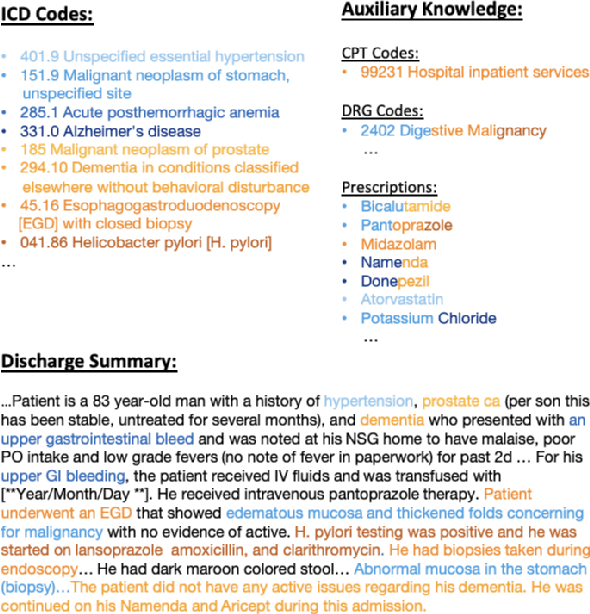Multi-stage Retrieve and Re-rank Model for Automatic Medical Coding Recommendation
Paper and Code
May 29, 2024



The International Classification of Diseases (ICD) serves as a definitive medical classification system encompassing a wide range of diseases and conditions. The primary objective of ICD indexing is to allocate a subset of ICD codes to a medical record, which facilitates standardized documentation and management of various health conditions. Most existing approaches have suffered from selecting the proper label subsets from an extremely large ICD collection with a heavy long-tailed label distribution. In this paper, we leverage a multi-stage ``retrieve and re-rank'' framework as a novel solution to ICD indexing, via a hybrid discrete retrieval method, and re-rank retrieved candidates with contrastive learning that allows the model to make more accurate predictions from a simplified label space. The retrieval model is a hybrid of auxiliary knowledge of the electronic health records (EHR) and a discrete retrieval method (BM25), which efficiently collects high-quality candidates. In the last stage, we propose a label co-occurrence guided contrastive re-ranking model, which re-ranks the candidate labels by pulling together the clinical notes with positive ICD codes. Experimental results show the proposed method achieves state-of-the-art performance on a number of measures on the MIMIC-III benchmark.
 Add to Chrome
Add to Chrome Add to Firefox
Add to Firefox Add to Edge
Add to Edge